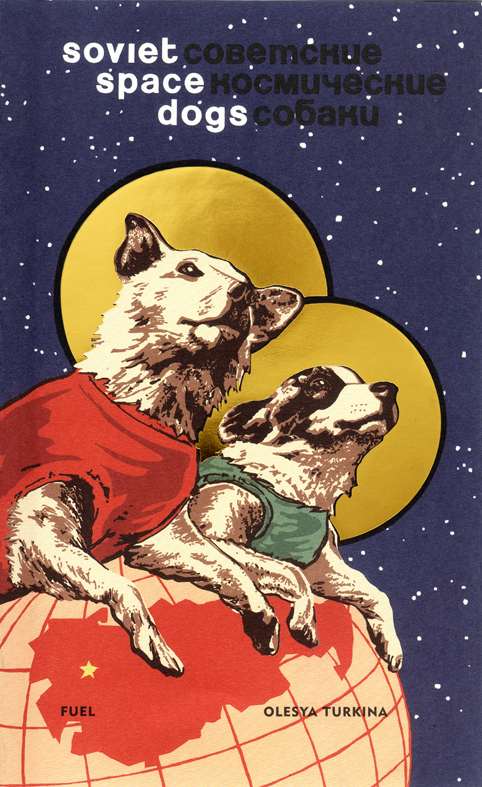

I see I see. Sounds like you got a plan!


I see I see. Sounds like you got a plan!


I agree with other comments here. Marx was eurocentric but not in that quote. I dont know how its possible to read that quote and think that its about history moving because of Europeans. And congrats on the job placement!


for queer and marxist enterpretation of an event, and speaking of GDR maybe the fall of the berlin wall? i'm just reminded of this article https://www.bostonreview.net/articles/gay-liberation-behind-iron-curtain/ that talks about how lgbt rights were rolled back because of the reunification. the only problem with focusing on GDR and USSR for sources is that it would be better to know german or russian in order to read primary sources on the topic.


I read a really cool book recently: A short history of trans misogyny. It has some super important concepts for queer historiography, for instance it notes that transgender as a concept is very very new and people who would call themselves trans would not do so as recently as 1980s.


So the Americans enter the war spring 1917, they were very isolationist before but the u-boat tactics outweighed that policy.
Not sure it wasjust the uboats. England and France were also in major debt to the US (because of weapons purchases), so losing two huge debtors wouldnt be great for US finance.


I remember that email situation. I think conforming to the status quo of the university is going to make it an even more miserable experience (speaking as someone who had that experience). As I've said before, there are definitely ways to find like-minded people in a context like that, but I wouldn't bet too much on the professors. Remember Mao's "combat liberalism" tenets. ![]()


It sounds like the presentation went pretty well! And yeah, state of the world is not the best right now.


He has a bit of a chip on his shoulder when it comes to Russia and China, I don’t know why
Early on, Marx posited that revolutions would happen in the most industrialised economies, as they would have a larger proletarian base. So liberals use it as a gotcha. But later in life, Marx and especially Engels saw revolutionary potential in Russia. I don't really see the gotcha since like, it's a science, it's supposed to be updated and revised.
will result in the end of history
yeah it is a bit of a misreading (to say the least). Marx only supposed that communism will be the end of history that is determined by class struggle. so history can still progress, but due to other movement.


Baron Haussmann
Yeah, the Huassmann anti-worker reconstruction of Paris is super interesting/depressing. I'm actually doing research right now how the same tactics are used to this day (though less visible maybe)


(what is the deal with Prussia? I have heard of it but it’s never been detailed to me ever in school)
It was the most organised and economically/militarily powerful state in mid 1800s. I think its important to learn about it since Marx was born in Prussia, lived and studied there. So a lot of its policies influenced Marx's perspective on the state and reformism etc. One of his relatives was even a high level official!
My professor said that the Holy Roman Empire was considered the first reich but, then again, this can be contested. Do you agree?
yeah, reich just means land/empire, so from the german perspective, the HRE is the first empire of (mostly) germans to exist.
Portugal was considered third tier alongside Belgium and I think Italy
It is funny to me because at that time Portugal still had a claim on all of Africa because of the Treaty of Tordesillas


it wasn't. it was reformed into the prison-industrial complex


It does make sense! I am a big fan of humanising/demystifying history.


I would like to study somewhere in Eastern Europe because of the Soviet Archives
The usefulness Eastern European archives will really depend on what you want to study (since the main ones are in Moscow). For instance the archives in Estonia and Belarus are vastly different, as well as the way they are studied. If you want to do socialist history research I might recommend Berlin for the GDR archives, if you are interested? From what I know GDR history is getting more popular/accepted + might be easier to find English language speakers for support or programs and whatnot


On cats and history, i recommend Marx for Cats by Leigh Claire La Berge. It's one of the best things I've read last year. It tells the history of capitalism, but from the perspective of cats.


If you are interested in the revolution, I'd definitely recommend 10 days that shook the world, even though it's a journalist's account as well.
On Stalin: Losurdo's book is great, but it's not really about Stalin or a defense of him. It is more about how Western media portrays Stalin, and critique of that. I know historians Robert W. Thurston (https://scholar.google.com/citations?user=djpNyBgAAAAJ) and Samantha Lomb (https://samanthalomb.weebly.com/publications.html) have done research on that period, specifically debunking the 'totalitarian' myth, so might be more useful for a history course.


It’s actually insane how many hours are eaten for a single post
Not at all. I spend like an hour on a comment paragraph.


I just said Anna Louise Strong
Good save. The thing is that the history of the soviet union is like super long and complicated, so I find it hard to recommend a book that like The Definitive History of USSR. Having said that, Russia and the Long Transition from Capitalism to Socialism by Samir Amin is a collection of essays that gives an overview of the Russian Empire, Soviet Union, and the Post Soviet situation at the moment. What period/aspect of the USSR would you be most interested in?
Does that make him an accelerationist?
Oh no, the "is revolution accelerationist" question (I am writing this in jest). The basic fact is that you cannot reform your way out of capitalism, the contradictions should be addressed directly, which Lenin later applied by forming a revolutionary party, with the primary goal of organising the revolutionary class. Accelerationism is the incoherent idea that instead of doing anything productive, the main goal should be sabotaging any progressive social movements in order to end capitalism quicker. It has no basis or place in marxism.


For the skills section in a resume, I agree with your professor. The things you bring attention to will be the ones that are seen by the employer. Like "creative, extroverted, team player" gives a different vibe than "organized, punctual, analytical". So it just depends on how you want to present yourself. Personally I focus on stuff like research skills and diverse historical knowledge, because those are the things that I want to be doing when I am working. As a marxist, you can safely say that you are "sensitive to social issues" or something.


why did Napoleon invade Russia?
Napoleonic wars was one of major research papers in high school lol, I can talk about it forever. The wars were a complete mess, everyone constantly switched sides and was extremely opportunistic in order to secure a favorable position for their respective Imperial projects. For Russia-France, the issue was mostly the division of Poland + Russia refusing to support a blockade against Britain, a major trading partner and a monarchy (which of course is more trusted than a rebellious republic).
I think western liberals generally think that Putin is trying to restore the Soviet Union, so the events would be related in that way.